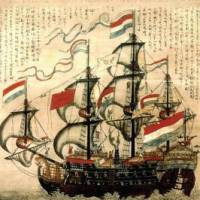"The Company and the Shogun" is an absorbing book about the relationship between Dutch traders in Japan and the Tokugawa Shogunate during the 17th century. Rather than providing an overview of the period, author Adam Clulow focuses on a handful of flashpoints where the Dutch East India Co. (VOC) and the Shogunate came into conflict.
The Company and the Shogun, by Adam Clulow
352 pages
Columbia University Press, Nonfiction.
Clulow is something of a revisionist, taking apart the belief that the Dutch prospered in Japan where the Portuguese faltered because of religion. He claims that the VOC was forced to declare itself a vassal of the Shogun — assuming a subordinate position in the feudal hierarchy — because the Dutch protestant United Republic had been freed from Catholic Spanish hegemony and the Shogun couldn't identify the "king" from whom the Dutch embassy could be received. Thus, the VOC's involvement in the 1637 Shimabara Rebellion — when the Protestant Dutch fired upon Catholic rebels in Kyushu at the Shogun's order — was the fulfillment of an oath, not an act of cowardice and financial expediency, as it is traditionally seen.
A touch too academic in tone at the start, this book settles into a fascinating reassessment of previously held assumptions about international relations in 17th-century Japan.


















With your current subscription plan you can comment on stories. However, before writing your first comment, please create a display name in the Profile section of your subscriber account page.